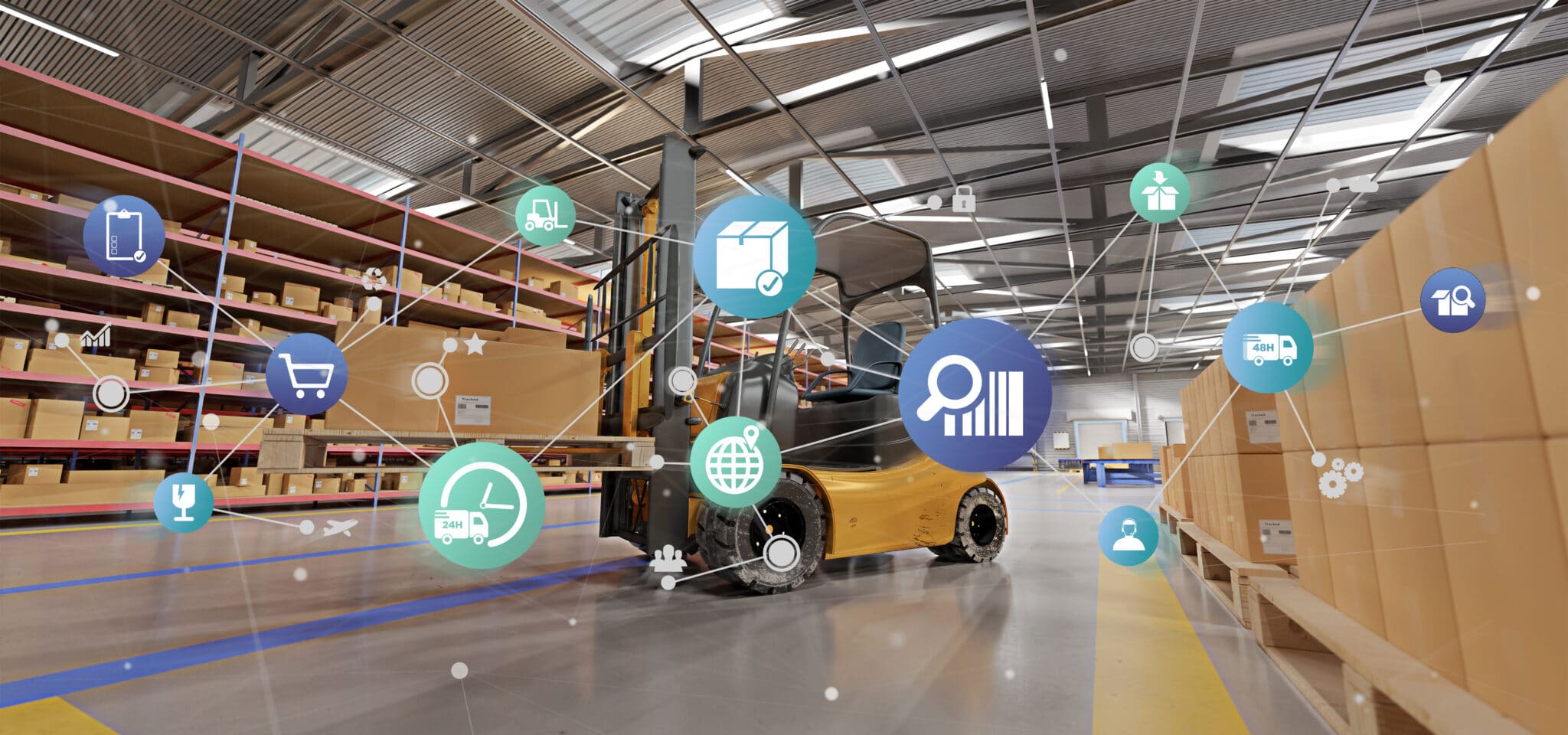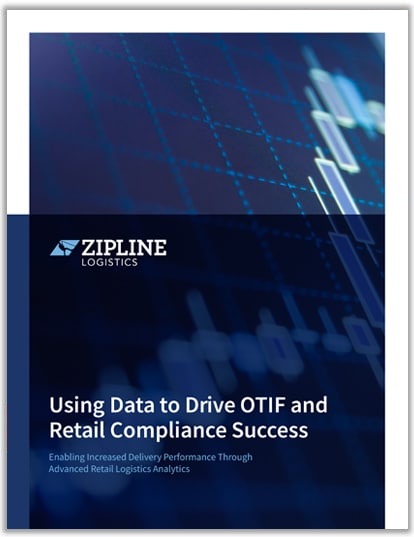
Logistics data has taken a front seat at forward-thinking CPG brands due to its ability to drive impactful and profitability-focused decisions in all facets of the supply chain.
As the business world further integrates advanced tech in the automated realm, logistics data will only become more important to CPG brands aiming to improve their transportation performance while reducing costs.
The CPG supply chain generates volumes of data that—when leveraged correctly—can be a differentiator for brands.
Its place in logistics decision making has become critical and can help your organization find the right route, carrier, and receiving location for retail orders.
And as businesses and consumers alike continue to adapt to a post-COVID world, data has taken center stage for CPG brands aiming to safeguard their market share through improved retail delivery performance.
 | Download: Using Data to Drive OTIF and Retail Compliance Success Download the free white paper to learn more about how data can be used to reduce logistics spend while improving supply chain performance. It is critical to leverage transportation analytics to get the most out of your operation. In this ebook, you will learn how data can be used to identify efficiencies and make logistics improvements. |
Let’s take a look at what logistics data is and why it’s playing a big part when planning retail deliveries.
What is Logistics Data?
Logistics data refers to the metrics used to track, measure, and benchmark parts of your supply chain’s performance. Some standard logistics data points include:
-
-
- Total Loads Moved
- Total Transportation Spend
- Average Cost Per Load
- Average Cost Per Case
- Average Cost Per Case Per Mile
- Top Pick-Up Locations (By Spend)
- Distance vs. Average Cost Per Mile
- Total Loads Per Day of Week
-
These key performance indicators (KPIs) are just a small sample of the immense amount of data points you can evaluate. Each provides insight into how your network is performing and where you can make a change.
With an effective data program, you can measure your past execution and use predictive analytics in the logistics industry to make the best decisions about your freight.
Why is Supply Chain Data Important for CPG Manufacturers?
Logistics data plays a key role in supply chain decision making at successful CPG brands. Data is particularly influential when dealing with trends and new demands as they emerge in retail delivery and supply chain management.
As retailers have tightened delivery expectations from their CPG vendors, the place of logistics data in supply chain decision making has become more critical.
Recently, Walmart upped its OTIF threshold to 98% for brands delivering to their distribution centers. This expectation increase has thinned the margin for error in a CPG brands’ supply chain and forced those committed to keeping their product on the big box store’s shelves to become more methodical about how they leverage data to hit retail compliance standards. Those who cannot meet the new OTIF standard are subject to fines that equal 3% of the cost of goods sold.
Because average on-time delivery performance in the CPG space hovers in the 70% range, successful logistics data programs remain the only consistent way to close the gap.
Moreover, excelling at OTIF is a distinguished strategy in differentiating your brand from competitors. Competition for shelf space is at an all-time high, and consumption trends continue to dictate the importance of a successful supply chain built to meet retailers’ demands.
In a recent survey, Zipline Logistics found that 100% of retail buyers said that a vendor’s ability to deliver product on-time impacted their willingness to work with them.
Additionally, 73% of respondents reported that they had ended relationships over delivery issues. If your organization fails to meet the standards set at retail outlets, your products can quickly be replaced with your competitors’.
How to Use Logistics Data to Solve Retail Compliance
Logistics data can help isolate supply chain sticking points that hinder your delivery performance at retailers, which is essential for taking corrective action and improving retail relationships. Your data tells the story about how your organization performs when it comes to sending your products to key customers.
Successful CPG shippers leverage the latest in machine learning and artificial intelligence to identify the right carriers for critical orders and make those crucial decisions faster.
In addition to identifying the best fit to haul your products, logistics data—when leveraged correctly—can tell you the right time to ship products, the correct retail facilities to send orders to, how disparate pieces of your supply chain function, and other critical decision drivers.
It can also free up valuable time, allowing shippers to work on an exception management basis and eliminate some of the minutiae of transportation management.
Establishing Effective Data Programs
Getting the most out of your organizations’ logistics data requires total investment in the value that leveraging metrics can provide.
Whether done in-house or through a quality outsource, fully leveraging good logistics data practices hinges on philosophical, cultural, and capital buy-in from key stakeholders.
Internal startup costs can be a barrier for CPG shippers due to the infrastructure and personnel needed; however, a data-driven logistics partner can successfully augment the need for in-house data program construction.
Investing in an effective logistic partnership is the first step on the road to making supply chain improvements through insight gleaned from data.
Zipline Logistics Helps CPG Brands Make the Most of Their Logistics Data
Zipline Logistics has created a proprietary data platform, KanoPI, to give CPG partners maximum insight into their transportation spend and performance.
When volumes of logistics data are paired with our niche expertise in retail and grocery transportation, we continuously help CPG shippers reach their supply chain goals.
KanoPI consolidates diverse data sources, isolates fundamental freight metrics, and offers enhanced visibility into your transportation operation.
It includes a track-and-trace platform for real-time order visibility, a document cloud for housing all freight paperwork, and a robust look into key performance indicators (KPIs).
We leverage KanoPI to partner with customers and execute optimal freight outcomes, and continuously identify improvement opportunities. Data analysis and retail expertise enable Zipline to optimize your logistics network to the fullest extent.
See what logistics data can do for you. Reach out to Zipline today.